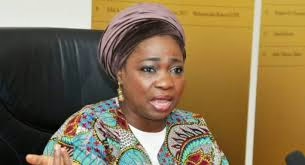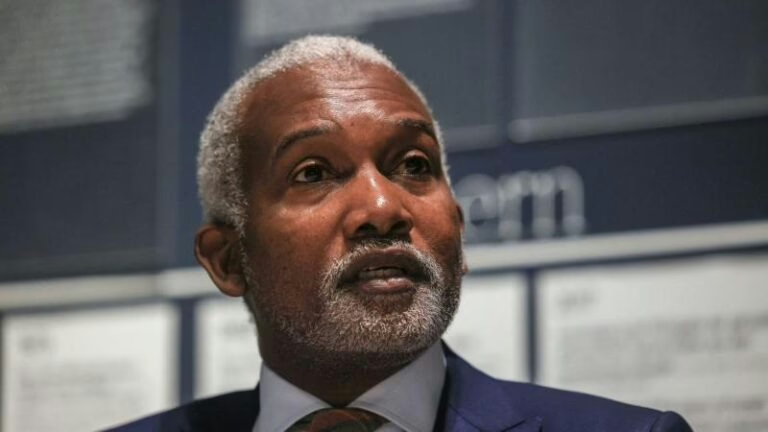In spite of the country’s dwindling revenue and alarming debt profile, many state governors are maintaining huge numbers of political appointees, thereby constituting a huge burden on their states’ lean resources and increasing the cost of governance.
The political appointees, usually with overlapping functions, include commissioners, senior special advisers, special advisers, senior special assistants, special assistants, executive assistants and technical advisers and assistants.
The governors have mostly retained their aides and maintained the high cost of governance despite the drop in revenue from the Federation Account Allocation Committee, which is a product of crude oil theft and subsidy payment by the Nigerian National Petroleum Company Limited.
The Federal Government has repeatedly lamented the dwindling revenue, while the World Bank said a few weeks ago that Nigeria was facing an existential threat due to its low revenue. A few months ago, the Nigerian Governors’ Forum also raised the alarm that remittances to FAAC under the current fiscal regime would continue to shrink, even as reports said the NNPC had expended all its revenues on subsidy payment and had not been remitting funds to the Federation Account.
The NGF, which is the umbrella body for the 36 states governors, noted that most states were already experiencing fiscal stress and that continued decline in their revenue meant their allocations from the federal purse might not be enough to cover salaries or their recurrent expenditures.
In spite of the disturbing economic outlook, however, many governors have refused to cut down on the number of appointments and cost of governance.
C’Rivers’ 38,000 aides
Despite the state’s N176bn domestic debt and $215m external debt as of June 30, 2022, according to the Debt Management Office, Governor Ben Ayade of Cross River State said in May 2021 that he decided to appoint 38,000 political aides to fight poverty in the state.
He had said, “In politics talk is cheap. I have history. I know clearly that poverty is extreme and I decided to bring 38,000 young people onto the dining table to allow me the emotional and social temperature to take advantage of my business connection to bring value to Cross River State.
“These people are bringing value. I have several projects ongoing. All of these need people to manage them. Besides, let’s deal with it, if you look at the principles, Section 14 of our constitution: the primary purpose of government is the welfare and security for the people. Of what use would it be to build a super highway or a deep seaport when 4.5 million people are dying of hunger? It is better to put food on a table than to put food on concrete. These 38,000 people have not only brought value, they have reduced poverty.”
According to findings, the governor has made more appointments, including assistants on agriculture and community mobilisation, among others.
Zamfara’s 3,093 appointees
In Zamfara State, despite the state’s $29m external and N115bn domestic debts, Governor Bello Matawalle has 27 commissioners, 66 Special Advisers and over 3,000 Special Assistants and Senior Special Assistants.
The governor’s Chief Press Secretary, Mallam Jamilu Iliyasu, confirmed to Sunday PUNCH that there were more than 3,000, “but I have no exact number.”
Asked how much the government was paying the aides monthly, Iliyasu said he had no idea as he directed one of our correspondents to the Commissioner for Finance, Sufuyanu Yuguda. The commissioner could not be reached as of press time as his number did not connect.
Okowa’s 3,000 aides
In Delta State, despite the N378bn domestic and $60m external debts, it was gathered that Governor Ifeanyi Okowa had no fewer than 3,000 aides. The state has about 29 commissioners and many senior special assistants, special assistants and personal assistants to the governor.
A source in the government said, “There are no fewer than 3,000 aides in Okowa’s government and the number may continue to increase. It is also obvious that the huge number of appointees is a form of empowerment. Governor Okowa runs an all-inclusive government, so he brings people, especially youths into his government.”
Niger gov’s aides
In Niger State, despite the N80bn domestic and $69m external debts, Governor Abubakar Bello has about 5,113 political appointees, including 17 commissioners. The other appointees include special advisers, senior special assistants, special assistants and personal assistants.
Diri’s 2,000 aides
In Bayelsa, despite the state’s $60m external and N150bn domestic debts, Governor Douye Diri is said to have 26 commissioners. In September 2021, the governor said he had appointed close to 2,000 political appointees since his inauguration on February 14, 2020.
The political appointees include special advisers, technical advisers, technical assistants, senior special assistants and special assistants.
The governor’s Chief Press Secretary, Mr Daniel Alabrah, said the administration was prudent and had never borrowed to pay the salaries of civil servants and political appointees, stating, “The governor has prioritised civil servants’ salaries and the government of Douye Diri is prudent with the resources of the state, which is why he is embarking on big ticket projects at the same time.”
Osun’s 100 appointees
In Osun, despite the state’s N150bn domestic and $86m external debts, Governor Adegboyega Oyetola is said to have close to 100 political aides.
A source told one of our correspondents that there were 32 commissioners and cabinet special advisers. The source noted that there were 19 non-cabinet special advisers and over 40 senior special assistants to the governor.
Efforts to get the government’s reaction were futile, as calls to the Commissioner for Information and Civic Orientation, Funke Egbemode, did not connect, while she had yet to reply to a text sent to her as of press time.
Tambuwal’s 225 aides
In Sokoto State, Governor Aminu Tambuwal has about 25 commissioners and over 200 aides, comprising special advisers, special assistants as well as senior special assistants. As of June 30, 2022, the DMO put the state’s domestic debt at N89bn and external debts at $37m.
A close aide of the governor said the number of appointees was for the smooth running of the government.
Obaseki’s appointees
In Edo State, despite the state’s N112bn domestic and $268m external debts, Governor Godwin Obaseki has about 10 special advisers, while special assistants and senior special assistants are about 200.
However, he has 18 commissioners as he pruned the ministries from 22 to 18, while the ministries, departments and agencies were reduced from 105 to 72 as part of efforts to cut the cost of running the government.
Asked why the governor needed such a large number of aides, a source close to the government said the SAs and SSAs were representatives of the government in the various wards and local government areas.
The source added, “It is true that states are experiencing economic downturn but the salaries of the aides are not a burden to the state. That has been considered before they were given the jobs. The appointment is not a political move; they (SAs and SSAs) are the link between their wards, local governments and the state government. They inform the government on what should be done in their various localities. Their appointment is like getting the government close to the grassroots.”
Kwara’s 58 aides
In Kwara State, even though the state has N110bn domestic and $45m external debts, Governor Abdulrahman Abdulrazaq appointed no fewer than 58 aides, including commissioners, special advisers and special assistants.
Out of these, there are 20 commissioners, eight special advisers and over 30 senior special assistants and special assistants.
The governor recently said all the appointees were making sacrifices in their service to the state as a result of dwindling revenue. According to him, only about 15 commissioners were recently provided with official vehicles, while majority of the appointees are not living in official quarters.
Abiodun’s 80 appointees
In Ogun State, with its N241bn and $122m, Governor Dapo Abiodun has 80 aides, including special advisers, senior special assistants, special assistants as well as consultants.
Even though none of the aides was ready to speak on the issue, the state has 21 ministries with each having at least three aides, with the information arm having between seven and 11. The governor is also said to have liaison officers in the 20 local government areas.
Ondo appointees
Similarly, in Ondo, despite the state’s N62bn domestic and $93m external debts, Governor Rotimi Akeredolu, has over 60 aides, including commissioners and special advisers.
Giving the breakdown, a top government official stated that the governor had 18 commissioners, 13 special advisers, who were all members of the state executive council, while the senior special assistants and special assistants to the governor were more than 30.
The source said the state was paying the N30,000 minimum wage and that it was not borrowing to pay salaries.
Ugwuanyi’s 300 assistants
In Enugu State, with its N89bn domestic and $123m external debts, Governor Ifeanyi Ugwuanyi is said to have over 300 political aides across communities and wards. The state has over 400 communities and 260 political wards.
A source said, “I can tell you that the governor maintains well over 300 special assistants and executive assistants in all the political wards in the state. He even increased the number recently and that is why it is difficult to tell the actual number of aides he has now.”
Efforts to speak with the Special Adviser to the Governor on Information, who oversees the Ministry of Information, Mr Steve Oruruo, were unsuccessful as he did not answer his calls, neither did he respond to a text message sent to him.
Umahi’s 470 aides
In Ebonyi State, which owes N59bn in domestic and $59m in external debts, one of our correspondents gathered that Governor Dave Umahi has over 470 aides, including commissioners.
Sanwo-Olu’s 35 aides
Meanwhile, in Lagos State, Governor Babajide Sanwo-Olu has 22 commissioners, seven special advisers, and six senior special assistants. However, the nation’s commercial hub has N797bn domestic and $1,27bn external debts as of June 30, 2022, according to information on the DMO’s website. The state has for years been ranked among the most indebted in the country.
Kano’s 22 commissioners
In Kano, a state with $109m external and N125bn domestic debts, Governor Abdullahi Ganduje is said to have not less than 22 commissioners.
When contacted, the Commissioner for Information, Mallam Mohammad Garba, who confirmed the number, said the commissioners were supervising all the state’s ministries.
As of January 5, 2020, the governor had seven special advisers and 10 senior special advisers, some of whom have been relieved of their appointments. Garba promised to get back to one of our correspondents on the current number of SAs and SSAs, but he had yet to do so as of press time.
Ikpeazu’s aides
Also, Abia State owes N107bn and $95m as of June 30, 2022. The governor, Okezie Ikpeazu, is said to have a cabinet of about 29 commissioners. Sources also said he had a number of special assistants, senior special assistants, special advisers and senior special advisers.
Fintiri’s 81 aides
In Adamawa State, which owes N120bn domestic and $77m external debts, the government says its priority is infrastructural development.
However, the Director-General, Media and Communications, Government House, Yola, Solomon Kumangar, said Governor Ahmadu Fintiri had a total of 81 aides. He gave the breakdown as 28 commissioners, 42 senior special assistants, 34 special advisers, four principal senior advisers and one chief adviser.
“We in Adamawa State cannot afford 2,000 to 3,000 aides because of our lean purse and we need to be prudent to deliver the dividends of democracy to the people. So, the governor insists on keeping his political appointees lean in order to achieve his objectives,” he stated.
Uzodimma, Wike different
Meanwhile, in Imo State, findings showed that Governor Hope Uzodimma dissolved his cabinet in May 2021 and had yet to fully reconstitute it. Before dissolving the cabinet, however, he had 27 commissioners and over 50 special advisers and tens of senior special assistants.
He only retained his media and security aides, and made new appointments in key areas like the bureau for politics and economic advisers. In reconstituting his cabinet, the governor merged ministries, thereby having fewer commissioners than he had before.
However, the state has $51m external and N210bn domestic debts as of June 30, 2022.
Also, in Rivers State, Governor Nyesom Wike has only about eight commissioners. Meanwhile, the state owes N225bn domestic and $140m external debts.
Fayemi sacks aides
In Ekiti State, the outgoing governor, Dr Kayode Fayemi, does not have special assistants or senior special assistants following their recent sacking by the governor. He also dissolved all the boards and commissions, excluding statutory commissions spelt out in Section 197 of the constitution.
However, he has 14 commissioners and 10 special advisers. The Chief Press Secretary to the Governor, Yinka Oyebode, who gave the figure, said, “They are being paid their remunerations as and when due and none of them is owed anything.”
The state has N119bn domestic and $115m external debts.
Debts hit N5.28tn
Meanwhile, the domestic debt owed by 36 states and the Federal Capital Territory rose to N5.28tn in the second quarter of 2022. The sub-national domestic debt stock was N4.46tn by the end of 2021, which means it rose by N820bn between January and June this year.
Data from the DMO showed that Lagos, Delta and Ogun states are the top three debtors, accounting for about 25 per cent of the total sub-national domestic debt at the end of June 2022.
Lagos State recorded the highest domestic debt stock of N797.31bn as of June 2022, accounting for 15.1 per cent of the total sub-national domestic debt, Delta State recorded a total of N378.88bn as domestic debt stock, accounting for 7.2 per cent of the states’ total domestic debt stock, while Ogun State, with N241.98bn as of June 2022, accounted for 4.6 per cent of the total.
The states with the least domestic debt stock are Jigawa, with N45.14bn; Ebonyi, N59.11bn; and Kebbi, N60.42bn.
In the Nigeria Development Update report, titled, ‘The Continuing Urgency of Business Unusual’, the World Bank said Nigerian states would likely lose N18.8bn in oil and gas revenues in 2022, as worsening revenue collection at the federation level increases budgetary pressures for the states.
According to the lender, the declining revenue from the federation level has put many states in a precarious fiscal position.
The bank warned that many states would be unable to meet up with their expenditures, adding that there was an increase in debt servicing expenditures of states.
“Lower transfers will cause state governments to incur debt or drastically slash discretionary expenditure,” it noted.
Experts react
Reacting, the Chief Executive Officer, Centre for the Promotion of Private Enterprise, Dr Muda Yusuf, said the rising debt profile of the government raised serious sustainability concerns.
He said, “The government tends to argue that the condition is not a debt problem, but a revenue challenge; the truth is that debt becomes a problem if the revenue base is not strong enough to service the debt sustainably.
It invariably becomes a debt problem and possibly a debt crisis. The government’s actual revenue can hardly cover the recurrent budget, which implies that the entire capital budget and part of the recurrent expenditure are being funded from borrowing. This is surely not sustainable.”
A political economist and former presidential candidate, Prof Pat Utomi, urged states to create an environment for wealth creation rather than depend solely on the federal allocations.
He said, “States must focus more on creating the environment for wealth creation. If you go back to the late 50s and early 60s, most of the developments that took place in Nigeria were from the sub-national governments. They collected the revenue and sent 50 per cent of it to the centre, but the military ruined all of that.”
On the several aides appointed by some governors, some economists have said such a practice has a damning consequence on the states’ economy.
The Dean, Business School, American University of Nigeria, Prof Leo Ukpong, said the high number of employees by the governors was creating a deficit in the states’ accounts, thereby encouraging borrowing.
Ukpong stated, “The bloated expenditure paid to the SSAs, SAs and what have you that they don’t need is going to create a deficit on the government side, because they pay more than they are receiving and that deficit is going to affect the economy negatively.
“Down the line, most of the states will be looking for more loans to borrow, especially the new governors, who are coming in. The old governors, who are leaving, will be borrowing more money now that they will move out. The new governors will be saddled with a lot of debt.”
He further said state assemblies and the judiciary needed to check the excesses of the respective states.
He added, “The state assemblies have to be proactive and let the governors know the limitations. But as we know, members of the state assemblies and the governors are usually from the same parties. Until we have true independent arms of government, then such a situation will not cease. An independent assembly must be an opposition assembly.
“Also the judiciary; if somebody sues the government that you are creating debt for us, the judiciary must be willing to rule on it. As for the governor, who is the main issue, we must put in people who are fiscally disciplined.”
Another expert, Prof Ayo Dunmoye, said Nigeria’s political economy was terribly distorted, noting that what obtained in Nigeria was a deficit of good governance.
Dunmoye stated, “Most of our political leaders see politics as business, that is why during elections they stake everything, expend a lot of money and they can go all out to win. So, invariably when they win, they want to recruit their supporters. That will now affect governance, democracy, the governed, payment of salaries, payment of pensions, it affects payment of the minimum wage and they don’t care.
“Some of those people they recruit as SAs are jobless supporters, who they call political militants that they have promised something and so immediately after the election, they have to give them something to keep their support and loyalty and not to allow them to go hungry; and unfortunately most of them don’t even have offices.
“Honestly, the governors do not care about other statutory functions that they have been elected to do like payment of salaries and other basic essentials of life. It is so unfortunate that even local governments also suffer from the over lordship of governors because there is a limit to how far local government chairmen can go in terms of ensuring that development gets to the grass roots.”
Another expert, Prof Onoh Felix, said the system of governance in Nigeria was too expensive, stressing that the country should adopt the parliamentary system like the United Kingdom.
He added, “Minimum wage is a debt and there is nothing they can do about it. However, it is a misuse of office sometimes to have a very large number of assistants and the money that would have been used in paying civil servants is used in paying these assistants. It’s also postponing the evil day because the workers can take the governors to court and they will win. But unfortunately, some of them will leave these for future administrations.
“I will say we should not operate this kind of government, but the one that is obtainable in the United Kingdom, which is less expensive. There is no way we can continue to operate this type of government. There is no way you can legislate on the reduction of appointees.”











Leave a Reply